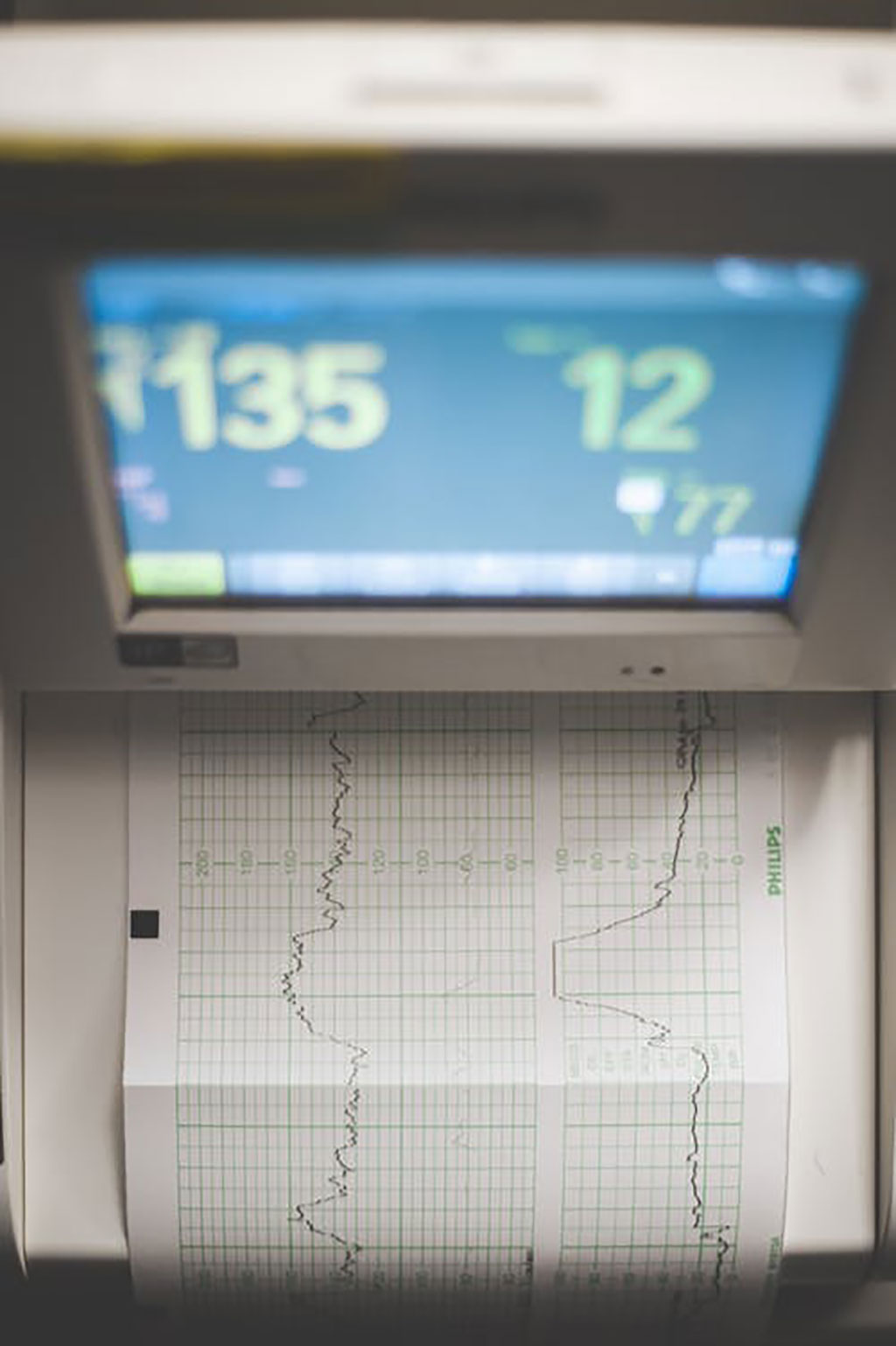AI-Based Method Predicts Atrial Fibrillation Risk Based on ECG Results
|
By HospiMedica International staff writers Posted on 24 Nov 2021 |

Investigators have developed and tested an artificial intelligence (AI)-based method for predicting an individual’s five-year risk of developing atrial fibrillation, or an irregular heartbeat, from electrocardiogram results.
The method developed by researchers at the Massachusetts General Hospital (MIG; Boston, MA, USA) could be used to identify patients who might benefit from preventative measures. Atrial fibrillation—an irregular and often rapid heart rate—is a common condition that often leads to the formation of clots in the heart that can travel to the brain to cause a stroke. MIG researchers developed the AI-based method to predict the risk of atrial fibrillation within the next five years based on results from electrocardiograms (non-invasive tests that record the electrical signals of the heart) in 45,770 patients receiving primary care at MGH.
Next, the scientists applied their method to three large data sets from studies including a total of 83,162 individuals. The AI-based method predicted atrial fibrillation risk on its own and was synergistic when combined with known clinical risk factors for predicting atrial fibrillation. The method was also highly predictive in subsets of individuals such as those with prior heart failure or stroke. The algorithm could serve as a form of pre-screening tool for patients who may currently be experiencing undetected atrial fibrillation, prompting clinicians to search for atrial fibrillation using longer-term cardiac rhythm monitors, which could in turn lead to stroke prevention measures. The study’s findings also demonstrate the potential power of AI—which in this case involve a specific type called machine learning—to advance medicine.
“We see a role for electrocardiogram-based artificial intelligence algorithms to assist with the identification of individuals at greatest risk for atrial fibrillation,” said senior author Steven A. Lubitz, MD, MPH, a cardiac electrophysiologist at MGH and associate member at the Broad Institute.
“The application of such algorithms could prompt clinicians to modify important risk factors for atrial fibrillation that may reduce the risk of developing the disease altogether,” added co–lead author Shaan Khurshid, MD, MPH, an electrophysiology clinical and research fellow at MGH.
Related Links:
Massachusetts General Hospital
Channels
Critical Care
view channel
Magnetically Guided Microrobots to Enable Targeted Drug Delivery
Stroke affects 12 million people globally each year, often causing death or lasting disability. Current treatment relies on systemic administration of clot-dissolving drugs, which circulate throughout... Read more
Smart Nanomaterials Detect and Treat Traumatic Brain Injuries Simultaneously
Traumatic brain injury (TBI) continues to leave millions with long-term disabilities every year. After a sudden impact from a fall, collision, or accident, the brain undergoes inflammation, oxidative stress,... Read more
Earlier Blood Transfusion Could Reduce Heart Failure and Arrhythmia in Heart Disease Patients
Blood loss during or after surgery can place significant stress on people with heart disease, increasing the risk of dangerous complications. Transfusions are often delayed until hemoglobin levels fall... Read moreSurgical Techniques
view channel
New Study Findings Could Halve Number of Stent Procedures
When a coronary artery becomes acutely blocked during a heart attack, opening it immediately is essential to prevent irreversible damage. However, many patients also have other narrowed vessels that appear... Read more
Breakthrough Surgical Device Redefines Hip Arthroscopy
Hip arthroscopy has surged in popularity, yet surgeons still face major mechanical constraints when navigating deep joint spaces through traditional cannulas. Limited tool mobility and the need for an... Read moreHealth IT
view channel
EMR-Based Tool Predicts Graft Failure After Kidney Transplant
Kidney transplantation offers patients with end-stage kidney disease longer survival and better quality of life than dialysis, yet graft failure remains a major challenge. Although a successful transplant... Read more
Printable Molecule-Selective Nanoparticles Enable Mass Production of Wearable Biosensors
The future of medicine is likely to focus on the personalization of healthcare—understanding exactly what an individual requires and delivering the appropriate combination of nutrients, metabolites, and... Read moreBusiness
view channel
Philips and Masimo Partner to Advance Patient Monitoring Measurement Technologies
Royal Philips (Amsterdam, Netherlands) and Masimo (Irvine, California, USA) have renewed their multi-year strategic collaboration, combining Philips’ expertise in patient monitoring with Masimo’s noninvasive... Read more
B. Braun Acquires Digital Microsurgery Company True Digital Surgery
The high-end microsurgery market in neurosurgery, spine, and ENT is undergoing a significant transformation. Traditional analog microscopes are giving way to digital exoscopes, which provide improved visualization,... Read more
CMEF 2025 to Promote Holistic and High-Quality Development of Medical and Health Industry
The 92nd China International Medical Equipment Fair (CMEF 2025) Autumn Exhibition is scheduled to be held from September 26 to 29 at the China Import and Export Fair Complex (Canton Fair Complex) in Guangzhou.... Read more















